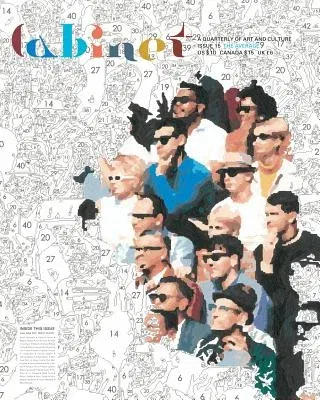Coined by the Belgian statistician Adolphe Quetelet in 1835, the term
"average man" evokes both contentment and anxiety. In some sense an
inverted history of the genius, the story of the average has had a
formative influence on modern aesthetics, politics and philosophy. For
the artist, to be mediocre is a greater fault than to have failed
spectacularly. For the politician, the battle for the heart of the
average Joe determines both message and mode of address. For the
philosopher, the consideration of everyday life and the ordinary demands
a redefinition of philosophy itself. Edited with Paul Fleming (German
Department, New York University), this issue features Francis Galton's
late nineteenth-century composite photographs of criminals; a
compilation of political paeans to the common man; an interview with
German scholar Jürgen Link on the reign of normalcy; the postwar search
in the U.S. for the perfect Norm and Norma; actuarial tables, risk
management, and the insurance industry; and Frances Richard on Diderot's
analysis of hack painting. The issue also includes Matthew Klam on the
color purple and art projects by Jason Salavon, Aleksandra Mir, Pedro
Reyes and more.

